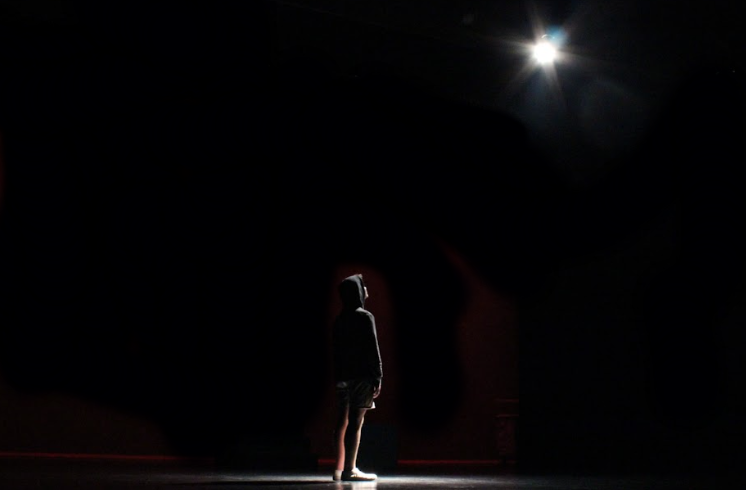Anxiety: It Isn’t You
According to studies, nearly 1 in 3 adolescents experience an anxiety disorder. The ages being between 13 through 18 are very common.
As he started to pace around, the only thoughts occurring in his head were “What is going on with me? ”or “Why do I feel like this?” Senior Chris Hernandez was simply eating with his family when suddenly a panic erupted in him. Over the past few weeks, he had been worrying about his health since it hadn’t been the best. His chest began to hurt, and the panic became more severe along with his body becoming cold and his head feeling dizzy. The more he tried to avoid it, the more it got worse. At this moment, he knew that something was wrong.
“Dad, something is wrong. We need to go to the hospital,” Hernandez said.
An ambulance was not an option even though it was offered. There was no way that he would let his parents pay for an ambulance even if it was for his health. The feeling was only getting worse, and he needed to get there fast. It was as if a huge pressure was surrounding his body, and he couldn’t stop it. Breathing is the only thing on his mind as he finally lays down on the hospital bed.
Anxiety has been one of the many struggles that high school students have faced over the years. According to New York Times Magazine, today’s American teenagers are suffering from anxiety more than in previous years which can even be caused by factors such as stress, trauma, and even abuse.
“Pre-adolescents and adolescents are at a stage of development where they are beginning to place more importance on their peers and how their peers perceive them,” 4-County Dr. Robin Young said. “This is also a time when their bodies are changing, which can sometimes make a teen feel very different and impact self-esteem, confidence, and efficacy. Teens are more likely to be anxious or worry about themselves, their school performance including sports, and how others perceive them.”
Many things can happen if anxiety is not handled correctly. Some of these can even lead to harm and unhealthy habits for students.
“Symptoms can include withdrawal from social activities, irritability, trouble concentrating, sleep problems, trouble concentrating, somatic complaints such as headaches or stomach aches, a heightened sense of threat, a change in eating habits, depression, and substance usage,” Dr. Young said.
One of the many things that high school students do is avoid. Avoidance is often seen in teenagers when they feel threatened or when they’re in a difficult situation.
“We see a lot of students wanting to avoid it because it makes them uncomfortable forcing themselves to face or work through their problems,” counselor Allison Chambers said. “With social media and cell phones, you guys are so connected now in ways we never were at your age. Whereas we could go home and shut off, you guys don’t have the opportunity to shut off because it never stops. When it comes to their anxiety, students are affected by a variety of factors.”
Being in stressful situations where students feel attacked or threatened is very common, and can even lead to anxiety attacks.
“I was on my bed, and I felt as if the whole world was watching me just get defeated,” Riverside City College student Moses Hernandez said. “Gravity felt twenty times stronger, and I couldn’t get out of bed as I lay with tears in my eyes and my breathing getting out of control. As the world and my peers watched me. It felt like it was crushing me from the inside, and I couldn’t do anything but keep myself distracted to calm down.”
With the proper support, anxiety can be treated. It can help to talk to someone or go to a trusted adult like a school counselor or a teacher. Talking goes a long way when it comes to how a person feels. Bottling your feelings and avoiding your emotions can lead to many unhealthy habits such as substance abuse and at risk for high blood pressure.
“Teens and adults will often seek out ways to alleviate the anxiety with unhealthy coping strategies including alcohol, tobacco, and substance usage (marijuana, vaping, etc.),” Dr. Young said. “Long term, this approach does not alleviate anxiety but results in substance dependence and can lead to many problems for the future.”
Although many don’t realize it, there are many things that people can do to help with their anxiety. Finding a support system and healthy coping mechanisms can help tremendously.
“You don’t realize it until you’re older, but everyone, just like everyone else, worries about what they’re dealing with and what they’re going through,” counselors Chambers and Julia Ashbaugh said. “Our thinking is linked to how we feel and behave, and with the right distractions, such as counting squares or making a list of things, can help. It takes a lot of practice and time to gain control of your thoughts and stop the negative ones. I would advise high school students to take a deep breath and not be afraid to speak with a trusted adult or parent; we are here to help.”
Along the same lines, people may believe that anxiety takes over your life, but this is not always the case.
“I used to think my anxiety would be something that I would have to deal with for the rest of my life, but since my first attack at the restaurant it’s been getting better,” Chris Hernandez said. “I still have bad anxiety, but not as much as I used to. Before I was worried if the smallest problem would cause an anxiety attack, but it’s been a lot better ever since I got help from friends and family members. I will continue to handle things the way I have been by reminding myself that there’s nothing to be anxious about and that everything will be alright. I will continue to use the strategies that help me and help others with their anxiety as well.”
Your donation will support the student journalists of Logansport High School. Your contribution will allow us to purchase equipment and cover our annual website hosting costs.

Emily Sanchez is a senior this year and has been involved in Magpie since her freshmen year in 2020. She currently serves as co-Managing Editor and enjoys...

Gretchen Prifogle is a senior at LHS and is currently serving as one of the Multimedia Editors. She served as the Photo Editor during her sophomore and...






